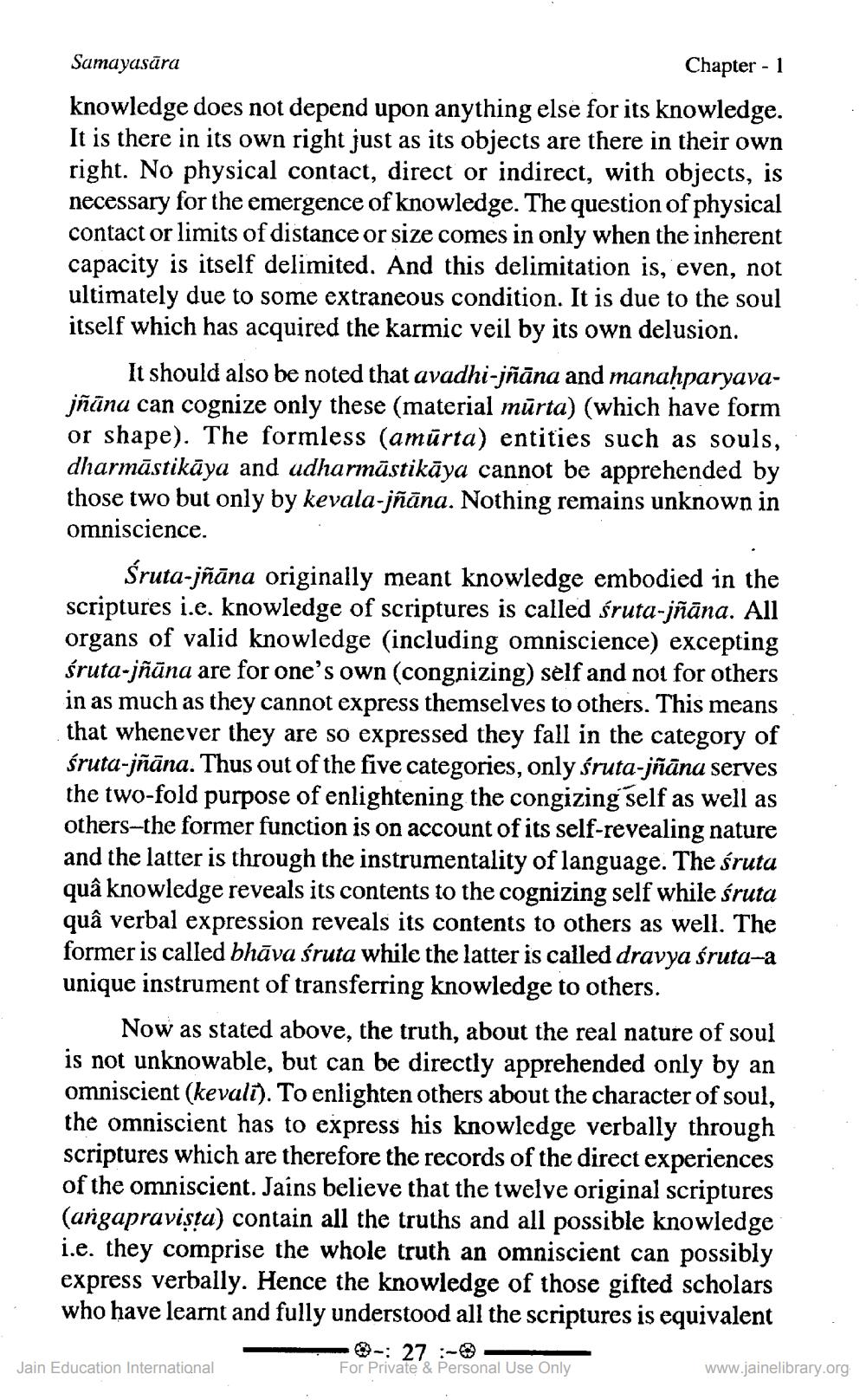________________
Samayasūra
Chapter - 1
knowledge does not depend upon anything else for its knowledge. It is there in its own right just as its objects are there in their own right. No physical contact, direct or indirect, with objects, is necessary for the emergence of knowledge. The question of physical contact or limits of distance or size comes in only when the inherent capacity is itself delimited. And this delimitation is, even, not ultimately due to some extraneous condition. It is due to the soul itself which has acquired the karmic veil by its own delusion.
It should also be noted that avadhi-jñāna and manahparyavajñānu can cognize only these (material mūrta) (which have form or shape). The formless (amūrta) entities such as souls, dharmāstikāya and adharmūstikāya cannot be apprehended by those two but only by kevala-jñāna. Nothing remains unknown in omniscience.
Śruta-jñāna originally meant knowledge embodied in the scriptures i.e. knowledge of scriptures is called śruta-jñāna. All organs of valid knowledge (including omniscience) excepting śruta-jñāna are for one's own (congnizing) self and not for others in as much as they cannot express themselves to others. This means that whenever they are so expressed they fall in the category of śruta-jñāna. Thus out of the five categories, only śruta-jñāna serves the two-fold purpose of enlightening the congizing self as well as others-the former function is on account of its self-revealing nature and the latter is through the instrumentality of language. The śruta quâ knowledge reveals its contents to the cognizing self while śruta quâ verbal expression reveals its contents to others as well. The former is called bhāva śruta while the latter is called dravya śruta-a unique instrument of transferring knowledge to others.
Now as stated above, the truth, about the real nature of soul is not unknowable, but can be directly apprehended only by an omniscient (kevali). To enlighten others about the character of soul, the omniscient has to express his knowledge verbally through scriptures which are therefore the records of the direct experiences of the omniscient. Jains believe that the twelve original scriptures (angapraviştu) contain all the truths and all possible knowledge i.e. they comprise the whole truth an omniscient can possibly express verbally. Hence the knowledge of those gifted scholars who have learnt and fully understood all the scriptures is equivalent
- 27 :For Private & Personal Use Only
Jain Education International
www.jainelibrary.org




